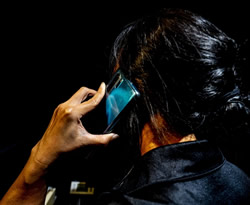 The Australian Competition and Consumer Commission (ACCC) has called on the wide Australian community to share warnings among each other, as a recent report reveals scammers are targeting Indigenous Australians, people who identify as culturally and linguistically diverse (CALD), and people with disability.
The Australian Competition and Consumer Commission (ACCC) has called on the wide Australian community to share warnings among each other, as a recent report reveals scammers are targeting Indigenous Australians, people who identify as culturally and linguistically diverse (CALD), and people with disability.
Deputy Chair of the ACCC, Delia Rickard said the Commission’s ACCC’s recently released Targeting scams report showed that Scamwatch received 4,958 reports from Indigenous Australians, who reported $4.8 million in losses.
Ms Rickard said this represented a 43 per cent increase in reports and 142 per cent increase in losses since 2020.
“Scammers generally cast their nets very wide, but some specifically target groups such as Indigenous Australians and CALD communities,” Ms Rickard said.
“Unfortunately, we saw some vulnerable members of the community lose significantly more money to scams last year,” she said.
“As vulnerable consumers can be difficult to reach through traditional channels, we also encourage the wider community to assist in sharing warnings about scams.”
Ms Rickard said younger Indigenous Australians lost more money than older Indigenous Australians, which was a reverse of the overall trend of financial losses to scams increasing with age.
She said the Report showed that scams impacting CALD communities made up five per cent of all reports to Scamwatch, and almost 13 per cent of the total losses, while community members lost a total of $42 million – an 88 per cent increase compared to 2020.
The Deputy Chair said members of CALD communities who reported a financial loss to Scamwatch on average lost $1,200, compared to an average loss of $845 for all people.
Ms Rickard said people from CALD communities were also over-represented in financial losses due to scams involving threats to life, arrest and other, and identity theft.
“The Australian Government will never threaten you with immediate arrest,” she said.
“Always stop to consider who you might be dealing with, and if you’re not sure if the call is legitimate, hang up and call the organisation directly using contact details you independently source.”
Ms Rickard said people who identified as having a disability made 15,387 reports to Scamwatch last year and lost more than $19.6 million to scams.
“This is a 104 per cent increase in reports and 102 per cent increase in financial losses compared to 2020,” she said.
“If you think scammers might have gained access to your personal information, contact your bank immediately.”
The ACCC’s 70-page Targeting scams Report can be accessed at this PS News link.











